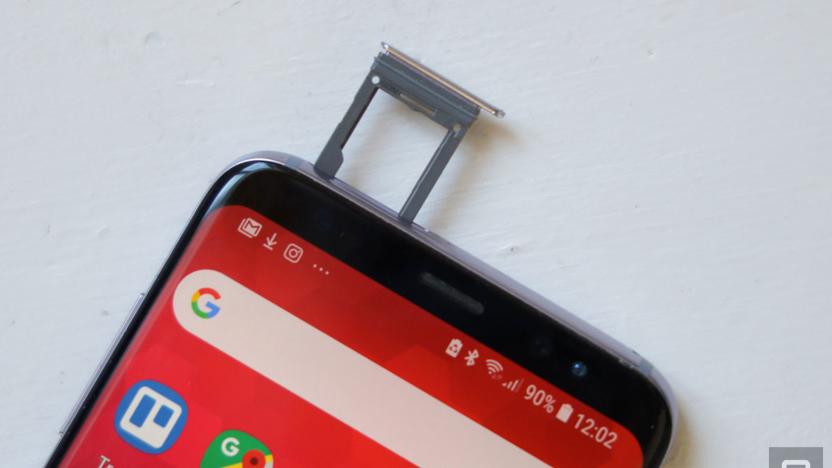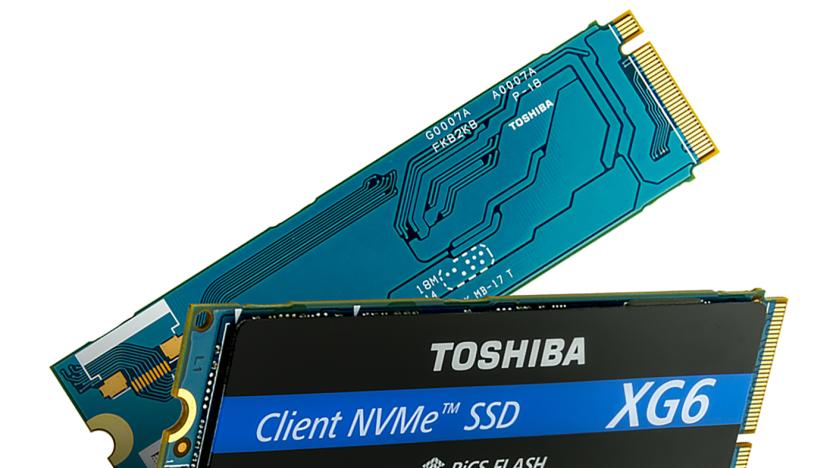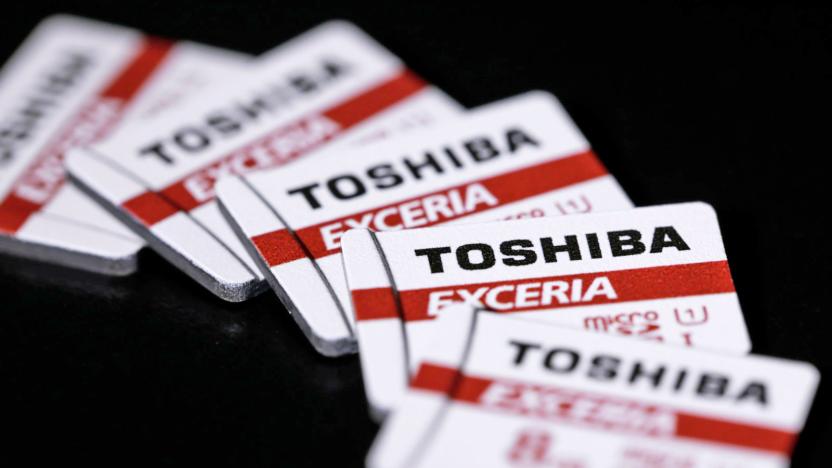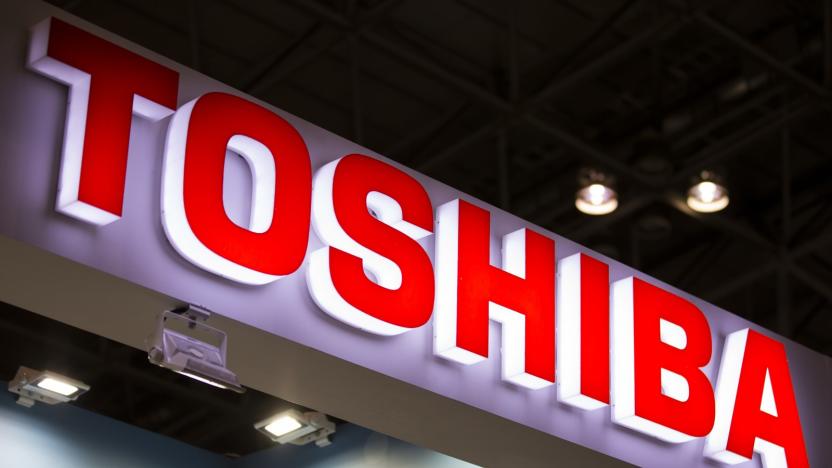96-layer
Latest

The era of 1TB microSD cards has begun
While processors can no longer keep up with Moore's law, memory manufacturers keep cramming more storage into ever-smaller spaces. Micron and Western Digital have both unveiled 1TB microSD memory cards that will let you significantly ramp up your smartphone storage, for a price. The products are arriving not long after Lexar started selling the first-ever 1TB SDXC memory cards.

Toshiba's SSDs are the first to use 96-layer 3D flash chips
Toshiba has unveiled the XG6 series, the first SSDs to be built with its cutting-edge 96-layer 3D flash tech. The XG6 series of NVM Express (NVMe) SSDs use BiCS 3D flash memory with 3-bits-per-cell that power the drives to 3,180 MB/s read and 3,000 MB/s write speeds, with a stellar 365,000 random write IOPS (input/output operations per second). At the same time, the devices consume a maximum of just 4.7 watts.

Toshiba's flash chips could boost SSD capacity by 500 percent
Toshiba has started building prototype sample flash memory with the highest capacity yet, 1.33 terabits (166GB) per chip. The 96-layer 3D NAND flash chips have four bits per cell, as compared to its current-gen three-bit tech, which allowed for chips with "only" 32GB. A typical package for flash storage, containing 16 of the chips, would have an astonishing 2.66 TB capacity, opening up new possibilities for faster, higher density SSDs and memory cards.

Toshiba's latest SSD tech squeezes 128GB onto a tinier chip
Toshiba and (we think) its partner WD have just unveiled the next generation of rapidly evolving flash memory technology. Its 96-layer NAND tech will arrive in 2018 in 3-bit, 32GB (256 gigabit) chip sizes. That will allow for SSDs and other flash products with 40 percent more storage than 64-layer NAND (which WD and Toshiba started manufacturing last month), reducing consumer prices. Furthermore, WD says that the tech is capable of 64GB all the way up to one terabit (125GB) per chip using 4-bit-per-cell technology.
